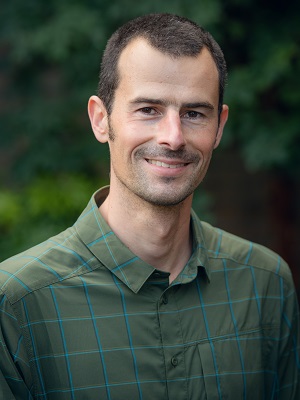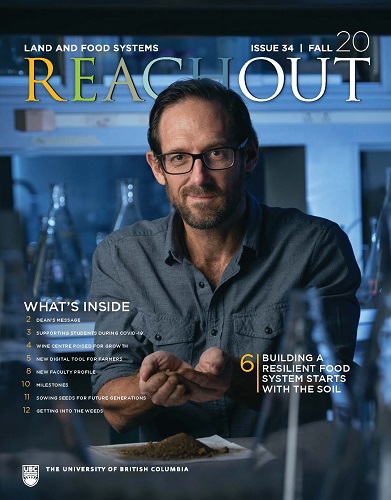New Faculty Profile: Thorsten Knipfer

Thorsten Knipfer joined the Faculty’s Applied Biology program in September 2020 as an Assistant Professor in Plant Physiology. Originally from Bavaria, Germany, Knipfer completed his MSc at the University of Bayreuth, where he studied the water relations of roots in corn plants. He then
received his PhD from University College Dublin in Ireland, where he continued his work using micro-manipulation techniques to study the link between cell and root water relations and aquaporin activity.
“I was trying to understand how water travels through roots at the cellular level, where transport resistance may occur, and how this impacts whole-plant water movement” says Knipfer. “With this knowledge, we become aware of the plant’s ability to regulate water flow dynamics and how it can adapt to different soil moisture conditions.”
Knipfer was also a postdoctoral research associate with the Department of Viticulture & Enology at the University of California, Davis, where he continued his work on water relations, this time in grape vines. “I was looking closely at the xylem, which is the tissue that transports water and nutrients from the soil to the canopy,” says Knipfer. “Drought being a reoccurring feature of California’s climate, we wanted to test the resistance of various varieties of grape vines and better understand their water requirements.”
For the first time, Knipfer was able to use x-ray computed tomography to witness the formation of gas embolism under drought stress and elucidate the underlying repair mechanisms in the intact plant – a similar methodology used in medicine to look internally at bones.
“This work was conducted at the Advanced Light Source synchrotron facility in Berkeley. We essentially brought our garden into the facility, and used the machine to take more than 1000 images on a 180-degree rotation. We then created a 3-D visualization of the tissue anatomy of the plant, so we could see the network of xylem that water is flowing through and detect the weak points where air is entering the system. This provided a good understanding of plant anatomy in relation to plant function.”
Knipfer is confident that farmers utilize this information to make management practices more sustainable through water savings. “If we want to use less water without sacrificing yield, we need to understand the physiological processes of what is happening inside of a plant, and exactly how much water the plant needs to maintain those processes. Only then can we avoid over- or under-watering.”
Here at UBC, Knipfer’s research portfolio will fill in key gaps in plant physiology, with bridges to soil-plant-atmosphere interactions and genomics.
He has already begun collaborating with Agriculture and Agri-Food Canada on a project to investigate the poplar genus-types, using the synchrotron at the Canadian Light Source. He has also been in touch with B.C. hazelnut growers, helping them to screen hazelnut varieties to identify drought-resistant types.
“This field continuously fascinates me, as we are able to obtain an advanced understanding of drought stress responses in plants at both the micro- and microscopy level using a combination of cutting-edge and traditional research tools.”
